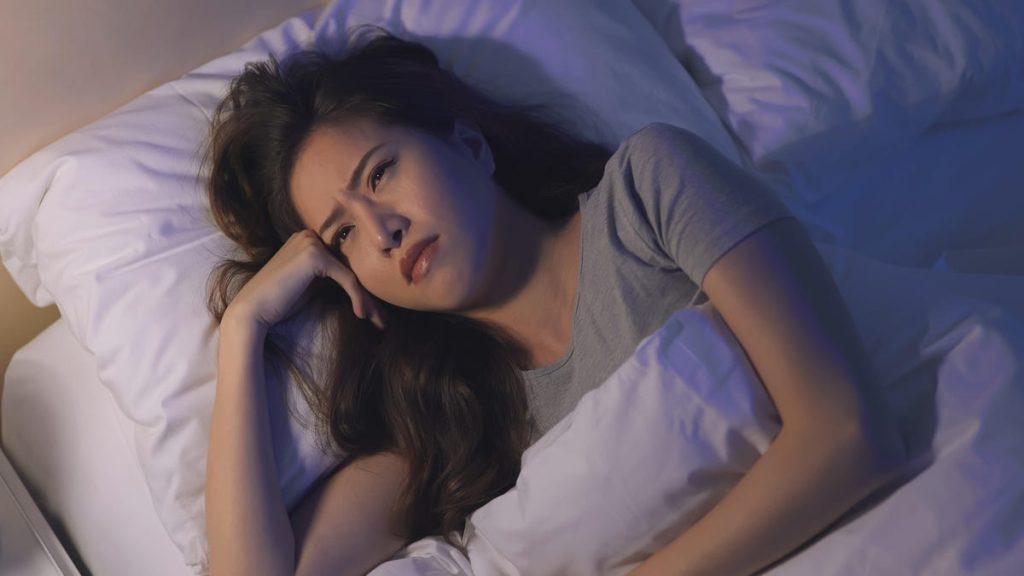Sleeping with anxiety can be challenging, as the release of stress hormones like cortisol can keep you awake. This can create a cycle where anxiety prevents sleep, and lack of sleep exacerbates anxiety symptoms. However, there are strategies to address this issue and improve your sleep quality. One key strategy is to establish a nighttime routine that helps you relax and signal to your brain that it’s time to wind down for sleep. This routine can include activities like light yoga or journaling, done in the same order and at the same time each night. Additionally, if you find yourself unable to sleep, it’s best to get up and engage in a relaxing activity rather than staying in bed awake.
Another important factor in managing sleep with anxiety is monitoring your caffeine and alcohol intake. Both substances can affect anxiety levels and sleep quality, so it’s recommended to avoid caffeine at least 6 hours before bed and alcohol at least 4 hours before bed. Meditation apps can also be beneficial in reducing stress and anxiety levels, as well as lowering blood pressure and heart rate. These apps offer guided meditations, deep breathing exercises, and calming stories to help you relax and fall asleep. Weighted blankets have been found to be effective in calming anxiety and improving sleep through deep-pressure stimulation. Integrating a weighted blanket into your nightly routine can provide comfort and help you relax.
Acknowledging your anxiety is also essential in improving sleep with anxiety. Accepting and addressing your feelings of stress, fear, or worry can help you incorporate stress-relieving activities into your daily routine. This can include daily walks or exercises to reduce anxiety levels and prevent them from building up at night. If your anxiety continues to affect your sleep, seeking professional help may be necessary. Overall, incorporating these strategies and being proactive about addressing your anxiety can help you sleep better at night. There are additional resources available for natural sleep aids, foods that promote sleep, and tips on prioritizing your sleep needs.


